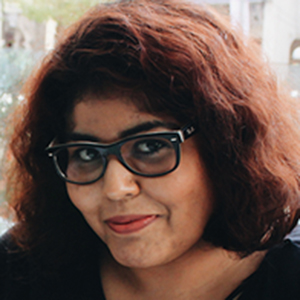 During an international conference last week, I had quite the struggle trying to explain to some of the overseas participants the intricacies of Malaysia – as a nation and a concept. We may be multi-racial and multi-religious as a nation, but for the most parts, we are quite segregated along racial lines.
During an international conference last week, I had quite the struggle trying to explain to some of the overseas participants the intricacies of Malaysia – as a nation and a concept. We may be multi-racial and multi-religious as a nation, but for the most parts, we are quite segregated along racial lines.
Over a deep discussion on racial stereotypes, languages and the “non-serving of alcohol to Muslim patrons”, my newly-made Zimbabwean friend tried hard to wrap her head around what a fellow Malaysian participant and I were saying. That we had an affirmative action for the majority, two judiciary systems and vernacular schooling in two languages other than the national school in a country with such diversity was a mental landmine for her.
“We have just as much post-colonial s*** to deal with as it is with other post-colonial countries, only ours has a far greater emphasis on colour,” I told her.
Fast forward to this week, one of the participants – a South American journalist – came to Penang for a short visit before heading back home.
Meeting for dinner and drinks Tuesday night, my colleague and I brought her to a well-known boutique hotel in the heart of George Town that had a decent Chinese restaurant. The opulence of the hotel with its majestic Peranakan antiques interspersed with glamorous Chinoiserie set the perfect tone for a lazy and indulgent weekday splurge.
Over the scrumptious Chinese delicacies and cups of hot tea, the conversation somehow turned to Malaysia’s race relations and economics. I had already warned my new South American comrade that we would have a lot to talk about, seeing as how our beloved prime minister had given us Malaysians a thrilling showcase of what is about to come in the near future with the Cabinet reshuffle.
We gave our friend from abroad a crash course in Malaysian history that started with the various colonisers of Malaysia, from the Portuguese all the way down to our current crop seated in Putrajaya. My Chinese colleague and I traced our ancestry back to China (her) and India (me) to illustrate the rich migrant history that Malaysia has built its foundations on. We discussed Malaysia’s rise to power and wealth in the mid-80s to late-90s, the Reformasi movement that swept the nation and setting the scene for a politicised citizenry and the slow-but-steady downfall of Malaysia.
It is never easy trying to articulate the reality of Malaysia to visitors from afar. We talk about the Malaysia of today, dissecting and analysing it among ourselves, but to share those ideas with an outsider feels as though I am airing my dirty laundry in public.
That’s when I reminded myself that the state that our nation is in today is of no doing of mine or my friends. Sure we make miscalculations in our decision-making when it comes to whom to vote for, which party to support, or to buy local or not, but Malaysians as a people are not the ones who have been driving this country blindly.
Despite that, we are the ones who are made to pay when something catastrophic happens to the country. Billions of ringgit are embezzled, lost or whatever, but it is the people who are made to pay for it, not just monetary, but also with their civil liberties and freedom. Over and over again we are shown that thuggery and thievery are rewarded at the cost of integrity and truth.
As the events of this past week unfurled, one after another, my disappointment – as a citizen of this country – was mounting. The obvious disappointment, one shared by many Malaysians, was that the government many of us had not chosen was hell bent on abusing its privileges and powers.
But the biggest disappointment and sadness came from the deafening silence I hear from those whom I had trusted and placed my hope in. They were the ones who made promises upon promises, positioning themselves as the defenders of truth and integrity. Yet when it matters the most, they seem to be dropping the ball, over and over again.
Talking about all this to a person from outside of Malaysia is as painful as it gets. On one hand is the desire to show them that my country is great, and that they just have to come back for more, and the other is the grim reality which none of us can escape.
Somewhere in the middle of our five-hour long conversation, my South American friend commented, “If I had not had this conversation with the two of you, I would have left Malaysia thinking that it is a prosperous country with much wealth and people of various races and religions living together and interacting freely.”
On so many levels, her perception of Malaysia is true. It is also not completely true at the same time. If two weeks ago I had written we are racist while muhibbah, this week I would like to add that we are poor while wealthy, oppressed while free, and fooled while aware. Perhaps that is what we really are, a flawed nation with much potential. – August 2, 2015.
* This is the personal opinion of the writer or publication and does not necessarily represent the views of The Malaysian Insider.


Comments
Please refrain from nicknames or comments of a racist, sexist, personal, vulgar or derogatory nature, or you may risk being blocked from commenting in our website. We encourage commenters to use their real names as their username. As comments are moderated, they may not appear immediately or even on the same day you posted them. We also reserve the right to delete off-topic comments